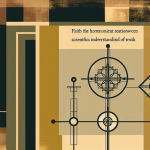The Importance of the Vatican: A Spiritual, Cultural, and Political Epicenter
The Vatican, a small yet profoundly significant city-state, holds a unique position not only in religious circles but also in the world of culture, politics, and history. As the spiritual center of the Roman Catholic Church and the residence of the Pope, the importance of the Vatican extends far beyond its geographical size. This article explores the multifaceted significance of the Vatican in contemporary society, its rich history, and its global influence.
A Hub of Spiritual Leadership
The Vatican is widely recognized as the heart of the Roman Catholic Church, home to approximately 1.3 billion Catholics worldwide. The Pope, who resides in the Vatican, serves as the spiritual leader for these believers, guiding them through his teachings and actions. The Vatican’s spiritual role is fundamental, influencing billions of lives across the globe.
The Papacy: A Global Authority
The Pope, as the Bishop of Rome, holds an unparalleled position of influence. His pronouncements on moral, social, and political issues carry significant weight. From addressing topics like climate change and poverty to promoting peace and human rights, the Vatican often takes a stand that resonates with followers and world leaders alike. The impact of papal encyclicals, public speeches, and even the Pope’s presence during significant events illustrates the Vatican’s role in shaping global discourse.
Pilgrimage and Worship
The Vatican attracts millions of pilgrims and tourists each year, all eager to experience its spiritual significance. Iconic sites such as St. Peter’s Basilica and the Sistine Chapel are not only architectural marvels but also places of deep religious meaning. Those who visit seek connection with their faith, making the Vatican a beacon of hope for many. The importance of the Vatican, therefore, extends to its role as a pilgrimage destination that fosters spiritual rejuvenation.
Cultural Significance: Art, Architecture, and Heritage
Apart from its spiritual significance, the Vatican is home to some of the most important artistic and architectural works in the world. Museums that showcase everything from ancient artifacts to Renaissance masterpieces further enhance its cultural importance.
Artistic Treasures
The Vatican Museums host an astounding collection of art dating from antiquity to the modern era. Works by renowned artists such as Michelangelo, Raphael, and Caravaggio have found a home within its walls. Visitors who tour the museums are not only treated to breathtaking art but also gain insights into the cultural heritage of the Catholic Church and its influence on global art movements.
Architectural Splendor
St. Peter’s Basilica, designed by the likes of Michelangelo and Bernini, stands as an architectural marvel that symbolizes the grandeur of the Vatican. It serves as a pilgrimage site, a place of worship, and an emblem of the Catholic faith. The Vatican’s architecture reflects the richness of its history, drawing visitors and researchers interested in art, religion, and history.
Preservation of Cultural Heritage
The Vatican also plays a crucial role in the preservation of cultural heritage. The Vatican Library, established in the 15th century, is one of the oldest libraries in the world, housing invaluable manuscripts and texts that preserve the history of the Church and civilization. The Vatican’s commitment to safeguarding these treasures underscores its importance in the cultural landscape of humanity.
Political Influence: A Unique Sovereign Entity
The Vatican uniquely blends spiritual authority with political influence. As a sovereign entity, it engages in diplomacy and participates in international relations, making the Vatican a significant player on the global political stage.
Diplomatic Relations
The Holy See maintains diplomatic relations with numerous countries and has observer status at the United Nations. This enables the Vatican to express its views on critical global issues ranging from humanitarian crises to international conflicts. The Vatican’s ability to advocate for peace and justice gives it a distinctive role in diplomatic circles.
Advocacy for Human Rights and Social Justice
The Vatican has a long-standing tradition of advocating for human rights and social justice. The Pope’s messages often reflect concerns about poverty, inequality, and the plight of the marginalized. By addressing these issues, the Vatican positions itself as a moral authority on global matters, influencing governments and societies to consider the ethical implications of their policies.
The Vatican’s Response to Contemporary Challenges
In an era of rapid change and challenges, the Vatican continues to adapt and address issues that impact humanity. From interfaith dialogue to environmental concerns, the Vatican’s responses are crucial in navigating contemporary challenges.
Interfaith Dialogue
In an increasingly diverse and interconnected world, fostering interfaith dialogue has become essential. The Vatican actively engages in discussions with leaders of other faiths, promoting understanding and cooperation. This approach highlights the importance of the Vatican in building bridges between different cultures and religions, which is vital for peaceful coexistence.
Environmental Advocacy
In recent years, the Vatican has placed greater emphasis on environmental issues, championing the message of sustainable development and care for creation. The encyclical Laudato Si’, published by Pope Francis, urges the global community to take action against climate change and environmental degradation. This environmental advocacy underscores the Vatican’s relevance in discussions about the future of the planet.
The Vatican in the Digital Age
As technology evolves, so does the Vatican’s approach to engaging with the world. The digital age presents both challenges and opportunities for the Vatican to connect with followers and disseminate its messages.
Embracing Social Media
The Vatican has embraced social media as a means to reach a broader audience. With official accounts on platforms like Twitter and Instagram, the Vatican shares messages that resonate with younger generations while maintaining its traditional values. This digital presence helps the Vatican engage with a global audience in real-time, reflecting its adaptability and relevance in contemporary society.
Educational Initiatives
Furthermore, the Vatican has invested in educational programs that utilize modern technology to teach the principles of the Catholic faith. Online courses, webinars, and virtual events enable individuals from around the globe to access Catholic teachings, fostering a sense of community and inclusivity.
Conclusion: The Enduring Importance of the Vatican
The Vatican remains a crucial institution in the realms of spirituality, culture, and politics. Its influence is felt not only within the Catholic Church but also throughout the global community. As a center of spiritual leadership, a treasure trove of cultural heritage, and an engaged political entity, the importance of the Vatican is multidimensional.
In a world marked by challenges and opportunities, the Vatican continues to adapt, advocating for human rights, promoting social justice, and fostering interfaith dialogue. Its commitment to preserving cultural heritage, combined with its responsiveness to contemporary issues, ensures that the Vatican will remain an influential force for generations to come.
As we navigate the complexities of modern life, the Vatican offers timeless wisdom and guidance anchored in its rich history and spiritual heritage. The significance of the Vatican extends far beyond its borders, making it a vital institution in understanding our shared humanity and striving for a better world.




